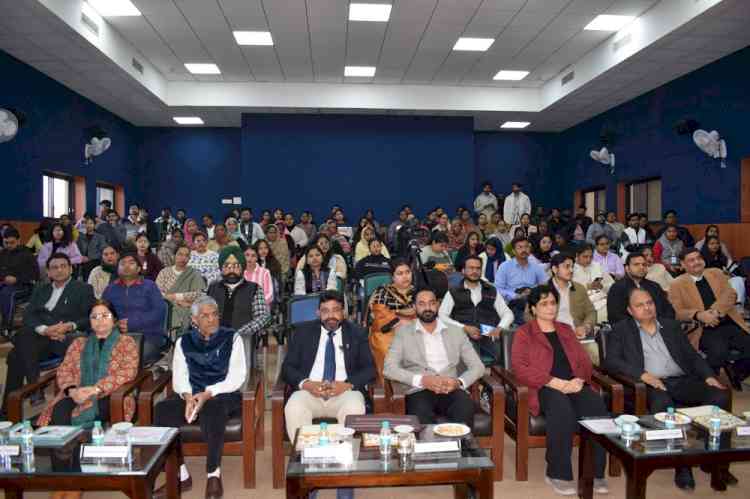PU Researchers published Patent for Magnetic Lignin Nano-Constructs Enabling Advanced 3D Cell Culture in Cancer Research
Panjab University (PU) researchers Dr. Sandip V. Pawar, Assistant Professor at the University Institute of Pharmaceutical Sciences (UIPS), and his PhD Research Scholar at PU Khushboo Pathania, (CSIR-Senior Research Fellow), have filed a patent for a pioneering biotechnology invention aimed at advancing cancer research. Titled “Magnetic Lignin-Derived Nano-Constructs for 3D Cell Culturing” (Publication No. 26/2025), the patent has been officially published by the Indian Patent Office.

Chandigarh, July 19, 2025: Panjab University (PU) researchers Dr. Sandip V. Pawar, Assistant Professor at the University Institute of Pharmaceutical Sciences (UIPS), and his PhD Research Scholar at PU Khushboo Pathania, (CSIR-Senior Research Fellow), have filed a patent for a pioneering biotechnology invention aimed at advancing cancer research. Titled “Magnetic Lignin-Derived Nano-Constructs for 3D Cell Culturing” (Publication No. 26/2025), the patent has been officially published by the Indian Patent Office.
It also marks an international collaboration with Dr. Vikramaditya Yadav of the University of British Columbia, Canada, enhancing the interdisciplinary approach of the research.
This innovation introduces lignin-iron oxide nano-constructs that enable magnetic levitation-based 3D cell culture—an eco-friendly, scalable alternative to traditional two-dimensional (2D) methods. By more accurately mimicking the natural tumor microenvironment, the 3D cell culture system offers a transformative platform for cancer biology studies and drug testing, particularly in breast cancer research.
The project integrates biodegradable lignin with magnetic nanoparticles, aligning with global efforts to develop sustainable biomedical technologies.
3D cell culturing has emerged as a leading alternative to animal models in biomedical research, providing more human-relevant data and reducing ethical concerns. Scientists now grow mammalian cells in 3D environments such as spheroids, tissue-like scaffolds, or mini-organs that closely replicate in vivo conditions. These models are more cost-effective and provide realistic responses to drugs and chemicals.
As the U.S. FDA and other global bodies move toward phasing out animal testing, such innovations underscore a critical shift toward more reliable and ethical preclinical research methods. PU’s patented technology contributes significantly to this global transition, paving the way for faster, safer, and more effective drug development.


 City Air News
City Air News 









